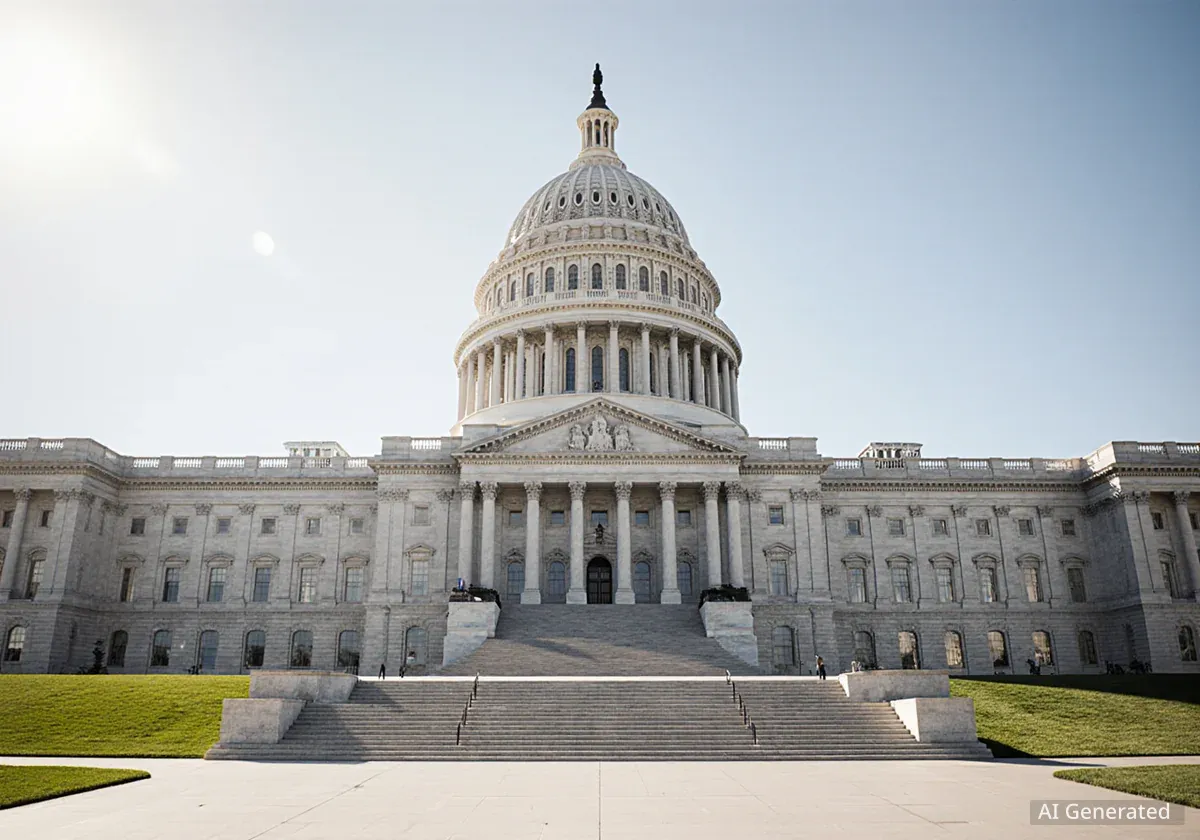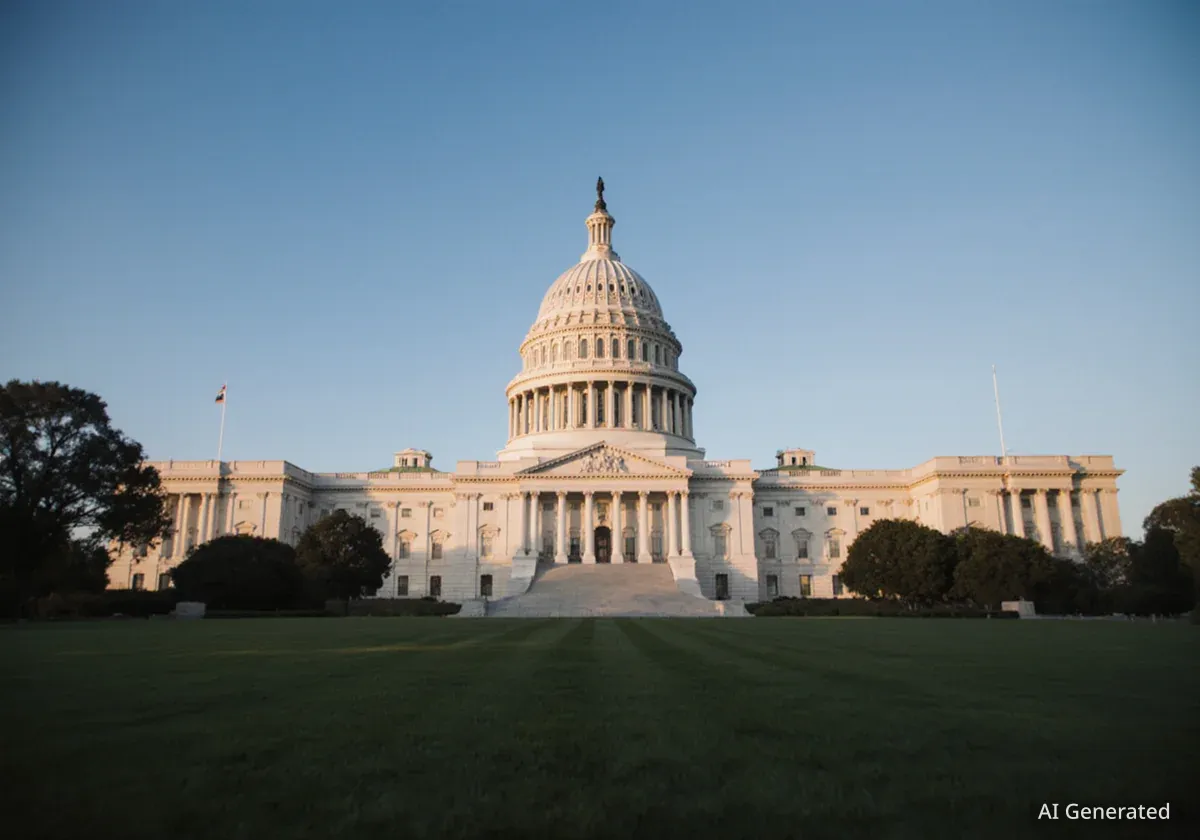A senior Israeli minister has publicly described the resettlement of the Gaza Strip by Israeli civilians as a "realistic plan," signaling a significant push from far-right elements within the government. This development comes amid reports that Prime Minister Benjamin Netanyahu is considering proposals to annex parts of the territory, a move seen by analysts as an effort to secure his governing coalition.
Key Takeaways
- Finance Minister Bezalel Smotrich, a key far-right figure, has stated that Israeli resettlement in Gaza is now a realistic objective.
- Prime Minister Netanyahu is reportedly considering annexing parts of Gaza to appease far-right coalition partners.
- Thousands of Israelis recently marched toward the Gaza border, demanding the re-establishment of Jewish settlements.
- These proposals have intensified domestic political divisions and drawn criticism from international partners.
Far-Right Influence Shapes Post-War Agenda
The political discourse in Israel regarding the future of Gaza is increasingly being shaped by influential far-right members of the government. Finance Minister Bezalel Smotrich, leader of the Religious Zionism party, has been a vocal proponent of re-establishing an Israeli civilian presence in the Gaza Strip.
In recent statements, Smotrich has moved this long-held ideological goal into the realm of practical policy, calling it a "realistic plan." This position reflects a broader ambition within his political faction to reverse the 2005 disengagement, which saw the removal of all Israeli settlements and military personnel from Gaza.
The push for resettlement is not merely rhetorical. It is part of a wider effort to influence the government's official strategy for the "day after" the current conflict ends. Proponents argue that a permanent Israeli civilian and security presence is necessary to prevent future threats from emerging in the territory.
Historical Context: The 2005 Disengagement
Prior to 2005, there were 21 Israeli settlements in the Gaza Strip. That year, the Israeli government under Prime Minister Ariel Sharon unilaterally dismantled these settlements and withdrew its military forces, ending a 38-year presence. The policy was highly controversial within Israel and remains a pivotal event for nationalist and religious groups who now seek to reverse it.
Netanyahu Navigates Coalition Pressures
Prime Minister Benjamin Netanyahu's government relies on a coalition that includes powerful far-right parties, making him susceptible to their political demands. According to various reports, Netanyahu is actively considering proposals to annex portions of the Gaza Strip. While no formal plan has been adopted, the discussions are seen as a way to maintain the loyalty of ministers like Smotrich and National Security Minister Itamar Ben-Gvir.
These ministers hold significant power within the coalition, and their departure could trigger its collapse and lead to new elections. This political reality forces Netanyahu to balance the demands of his right-wing allies against pressure from international partners, particularly the United States, who strongly oppose any permanent reoccupation or reduction of Gaza's territory.
This dynamic has created a tense political environment where the long-term strategic direction of the country is heavily influenced by the ideological goals of a minority faction. Critics inside Israel argue that this appeasement strategy risks alienating key allies and further destabilizing the region for domestic political gain.
Public Demonstrations for Resettlement
The call for resettlement is not confined to the halls of government. Recently, thousands of Israeli citizens, including families and prominent nationalist figures, marched toward the Erez crossing on the border with northern Gaza. The demonstration was explicitly organized to demand the renewal of Jewish settlement in the territory.
Participants carried signs and chanted slogans calling for a return to Gush Katif, the former bloc of Israeli settlements in Gaza. The march highlights a motivated and organized grassroots movement that provides popular support for the policies advocated by far-right politicians.
The Human Cost of Displacement
While discussions of resettlement continue, the humanitarian situation for Palestinians in Gaza remains dire. Reports have detailed the extreme costs faced by civilians attempting to evacuate conflict zones. Some have allegedly paid as much as $1,000 for a tent or $2,000 for transportation out of areas like Gaza City, illustrating the severe economic and personal toll of the ongoing war.
Growing Internal and International Opposition
The push for Gaza resettlement has triggered significant backlash both within Israel and on the global stage. Many Israelis, including prominent writers, former officials, and opposition politicians, have expressed alarm. They warn that such policies are extremist, messianic, and could lead to the erosion of Israel's democratic and liberal foundations.
Some commentators have expressed deep concern, with one analyst writing that if the current trajectory continues, "soon no liberal will be able to live in Israel."
Internationally, the reaction has been overwhelmingly negative. The United States and European nations have reiterated their opposition to any long-term Israeli reoccupation of Gaza. In the wider region, diplomatic tensions are rising. Qatar has reportedly been pressuring the United Arab Emirates to close its embassy in Tel Aviv as part of a broader diplomatic response to Israel's actions.
This growing global outrage is focused on the conduct of the war and the emerging plans for Gaza's future. Many international observers distinguish their criticism of Israeli government policy from antisemitism, framing it as a response to specific actions and political proposals that violate international norms regarding occupied territories.





